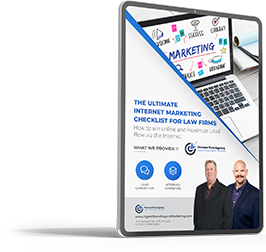
For boat owners, there’s nothing like taking their precious vehicles out onto the water and enjoy a day of just cruising around, wind in their hair, or maybe even dropping a fishing line and wait for a bite. While many boat owners may have carefree attitudes, there’s one thing they should never be casual about – insurance. Insurance is importance (and sometimes, a requirement) for anyone who owns a boat. As an insurance agent, if you know anyone who owns a boat but doesn’t have insurance, then you should really tell them the important of getting a policy. Many potential boat owners may be confused about how to buy boat insurance. After all, it’s not exactly as common as homeowners, car, or even life insurance. So, if you have a potential client looking for yacht insurance or other types of marine craft policies, you should tell them these six things.
1. You may be required by to have boat insurance
Currently, there is no single law that requires all owners of marine crafts to have insurance. However, some states do require some liability coverage if you own a certain type of boat (like PWCs or powerboats over 50 HP). Also, if your client uses a state-run marina, uses their boat in a state-run park, they are required to have insurance.
You can check the state’s requirements here, but also, the marina where they dock their boat might require it. They will want to see proof of liability insurance and they might even want to be listed on the policy. Also, if they took out a loan to purchase the boat, the bank that holds the loan will require insurance and they won’t grant you a loan unless they see proof of full – not just liability – insurance.
2. Homeowners Insurance may not give them enough coverage
The good news is that some homeowners insurance policies do cover marine crafts. However, most policies only have a minimal amount of coverage. This usually pertains to boats with smaller engines or without one at all, like a sailboat. If your client is buying a yacht or even a $20,000 motor boat, then their homeowners policy will not cover the cost of replacing such a vehicle.
People who own a boat should have a separate insurance policy, especially if they’re planning to purchase expensive ones. However, your client can save money by bundling their homeowners, car and boat policies.
3. It’s NOT just a boat version of auto insurance.
Some people may think a boat is just a car on water, and that’s kind of true. However, insurance companies don’t see it that way and boat or yacht insurance isn’t just a marine version of auto insurance.
Think of boat insurance as kind of like the Frankenstein of insurance. Like car insurance, it can cover liability if the owner were to hurt someone in an accident, as well as property damage to docks and other boats, or the boat itself. Policyholders can also purchase additional riders for other things like vandalism, theft, even protect things like fishing gear. At the same time, it’s like home insurance because policyholders can choose between cash value assuming total loss or the replacement cost, as well as liability if someone riding in the boat were to get hurt (like when someone is injured on their property).
However, one thing that sets it apart is that this type of insurance allows owners to suspend their coverage for short periods of time in order to reduce costs. For example, they can stop coverage during the winter time while the boat is docked and not really being used.
{{cta(‘aeabed37-e30e-40a2-b473-fa6e51e45536′,’justifycenter’)}}
4. Yes, boats depreciate in value too.
Much like a brand new car, a boat depreciates in value once the owner takes it out of the dealership. When buying insurance, boat owners have to decide on whether they want to insure for the agreed value or the market value, should they suffer total loss. Boat owners should think carefully about which they should get.
Of course, agreed value policies will be more expensive, especially if the amount set is high. But then, that means that if your client were to suffer total loss, they would get enough money to replace it based on the current prices of boats, instead of its current value.
5. Boats can be covered while out of the water too.
Unless your client has their boat permanently docked somewhere (whether in a marina or if they live near water), then most likely, they have to tow them around using a trailer or truck. Now, while transporting their boats, they could run into accidents. Are they covered by insurance?
The simple answer is yes, but not by the actual boat insurance. If the boat gets damaged while attached to a car or truck, then auto insurance should cover it. If it happens while it’s parked on their property, then homeowners insurance can pay for repairs. Of course, there are limitations. For boat owners who want to be sure they’re properly covered out of the water, an umbrella policy might be a good solution.

6. Friends and family members driving the boat are covered too.
If your client lets his friend or family member drive the boat with their permission, then they are covered by the policy. However, renting or leasing the boat to someone else voids any coverage. Also, should your client hire a professional crew or captain, then they will not be covered by liability insurance.
Boat insurance is not only necessary, but vital to anyone who owns any type of marine craft. Of course, most boat owners are responsible people, but accidents do happen. Insurance not only helps mitigate loss but, protects owners and their families from potential financial devastation, should they damage property, injure someone or even accidentally cause fatalities while operating their boats. If you know someone who has a boat but doesn’t have insurance, then as an insurance agent, it’s your duty to inform them of the consequences. That way, they can decide for themselves if they should get a policy.
{{cta(‘aeabed37-e30e-40a2-b473-fa6e51e45536′,’justifycenter’)}}






